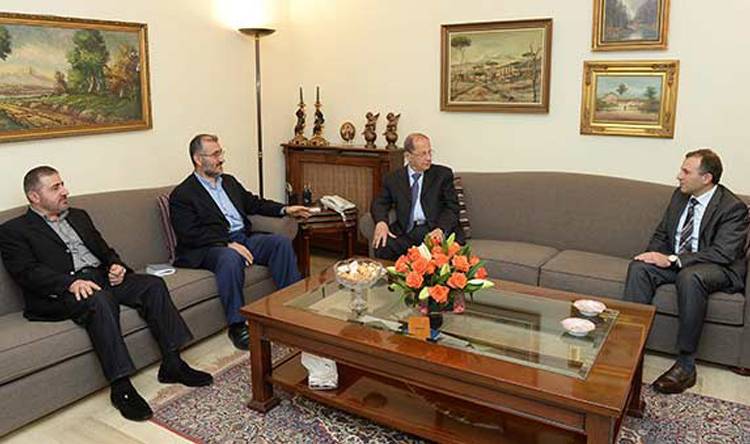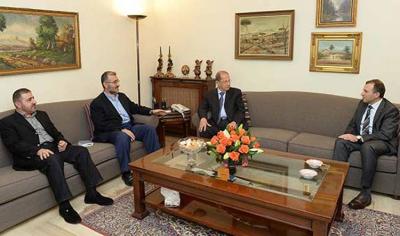Since the start of the constitutional period for electing a president, it has been difficult to agree on the specifications proposed by Parliament Speaker Nabih Berri, or similar proposals from Hezbollah, or anything closely resembling them — if not completely contrary — among the parties distributed around the Progressive Socialist Party, the Free Patriotic Movement, the Lebanese Forces, and others. To this day, the presidential election revolves around the same zero point: conflicting specifications. In Berri's recent initiative, there seems to be a conciliatory fatwa between two contradictory viewpoints that do not converge: the first, advocated by the Shiite duo and passionately defended by the Speaker of Parliament, is to elect a president after a dialogue table, while the second, held by the opponents of the duo — the Christian team — insists that the election of the president must precede the dialogue that he will later manage. Both viewpoints have been tested in 12 parliamentary sessions, the first and the last of which have shown the impossibility of electing a president under the current political balance in the Parliament.
Sources close to "Al-Akhbar" reveal that a third viewpoint championed by the leader of the Free Patriotic Movement, MP Gebran Bassil, has emerged. He has distanced himself from his Christian allies, although he still claims to support the candidacy of former Minister Jihad Azour, as he draws closer to Hezbollah, from whom he was almost on the verge of declaring his break. Bassil considers that the political gain he seeks in his dialogue with Hezbollah is more significant than the presidency itself. He goes further in discussing this with his visitors, stating: "It is more important than both Sleiman Frangieh and Joseph Aoun combined." This represents a "delayed gain that has been sought for 33 years."
While he does not publicly state that acquiring the two gains of expanded administrative and financial decentralization and the establishment of a trust fund through "two laws issued by Parliament along with their implementing decrees" would prompt him to vote for Frangieh, it is understood that electing his opponent — if elected — does not make him significant: "The gains of the laws and the verbal approval on the presidential priorities paper facilitate the election." However, he adds: "Once expanded administrative and financial decentralization is established, who can evade it when it becomes structural in the system? It is no small matter for the Shiites to accept it, and that would be a great advancement."
He further reveals that he received information from Hezbollah about "the Speaker's lack of objection to expanded administrative and financial decentralization after being approached about it. What does it mean without his approval and without a unified Shiite stance?" Bassil also mentions that there is a second pathway that requires less time, parallel to obtaining those three gains, but a substitute if these fail: "We all support a third candidate. Neither our candidate Jihad Azour nor their candidate Frangieh, but a third we agree on, who is certainly not Joseph Aoun and won't be."
Regardless of whether Berri's initiative is met with rejection from his opponents or welcomed by his allies, it reflects the existence of non-marginal and non-secondary differences in attitudes surrounding the electoral entitlement. While the Speaker insists that the dialogue should focus solely on one item — the election of the president — Hezbollah is keen on requesting a broader dialogue that encompasses the upcoming term, which it can only see through its sole candidate, Frangieh. Meanwhile, the Christian team insists on limiting the problem to the constitutional entitlement itself and calling for successive sessions until the president is elected.
While Berri seems most interested in the role of the special French presidential envoy Jean-Yves Le Drian in gathering the parties to discuss the specifications of the president initially and then applying them to the most suitable character for the next phase, Hezbollah behaves as if the election of the president is a secondary item, subordinate to the primary matter at hand: the ongoing dialogue between it and Bassil. Such a dialogue is something that the Speaker turns his back on, believing that electing the president should take precedence over any other commitments and obligations that can be explored later in the new governance program. Furthermore, neither Hezbollah nor the Free Patriotic Movement can unilaterally bind any others to what they agree upon, especially if it requires a role from Parliament.
What Berri mentioned during the Imam Sadr anniversary on Thursday, he had hinted at more than once to his visitors in previous days. He anticipates Le Drian's arrival in Beirut in accordance with what he heard from him before negative reactions to his messages were issued recently, expecting to meet with the French envoy to limit the dialogue to electing the president exclusively, reducing the number of participants at the dialogue table to no more than 15. Berri added that the dialogue should start from where the disagreement has settled: each team or more proposing the name they recommend for election as president and attempt to persuade the other through arbitration with Le Drian, until reaching the most appealing candidate. However, he prefers, if they cannot agree on a single name, to hold successive sessions instead.
What Berri's initiative, which is also supported by his ally Hezbollah, aims for is rooted in what the Christian team demands: highlighting the true content of the problem.




